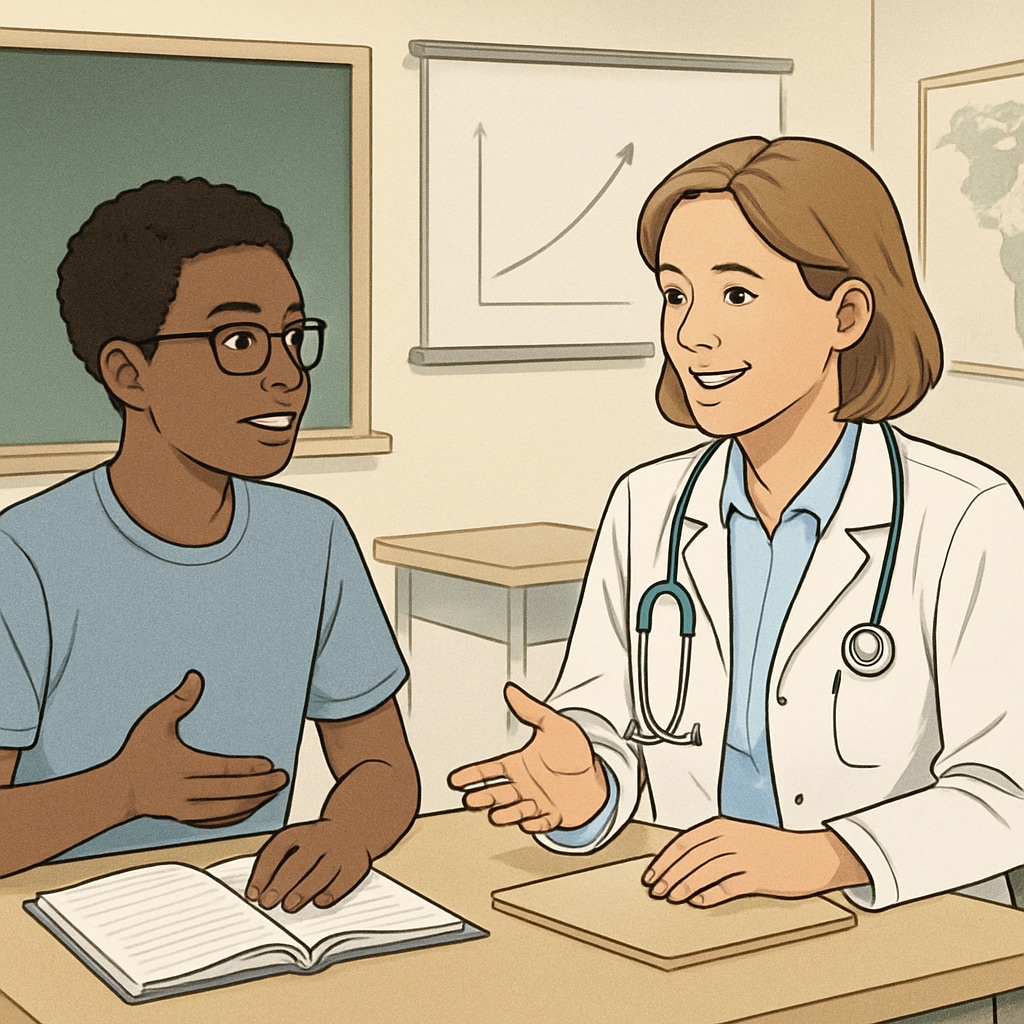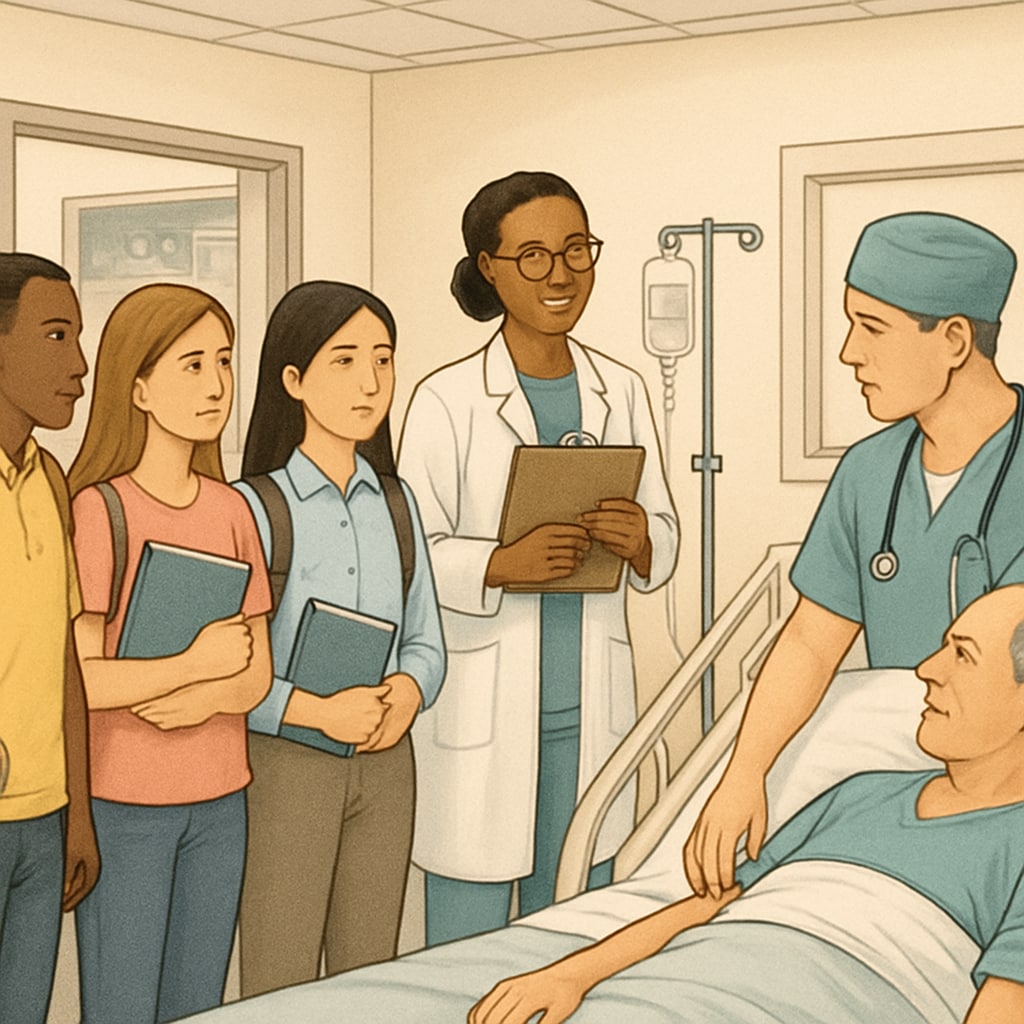Understanding “medical careers, school projects, and career counseling” is crucial for students exploring future professions. The “Medical Career Exploration Program” (MCEP) is an innovative initiative designed to bridge the gap between aspiring young people and experienced healthcare professionals. By facilitating direct interactions with doctors, this program offers students a genuine perspective on the medical field, aiding them in making informed decisions about their future. As students navigate the complexities of career planning, programs like MCEP provide invaluable guidance and support.
Why Connecting Students with Medical Professionals Matters
High school is a critical time for students as they begin contemplating their career paths. For those considering a future in medicine, understanding the realities of the profession is essential. However, many lack access to reliable information about what a medical career truly entails. Direct engagement with practicing physicians can help demystify the profession, showing students both the rewards and challenges of a healthcare career.
Programs like MCEP offer students the opportunity to:
- Ask questions about daily responsibilities, work-life balance, and challenges in the medical field.
- Gain insights into required skills and qualifications.
- Understand the ethical and emotional aspects of working in healthcare.
This hands-on approach not only inspires students but also helps them align their expectations with the realities of the profession, making it a vital component of career counseling in schools.

How School Projects Enhance Career Exploration
Integrating medical career exploration into school projects allows students to engage with the subject in a structured way. For instance, research assignments, interviews with healthcare professionals, or presentations on medical ethics can provide students with deeper insights. These projects encourage critical thinking, curiosity, and a better understanding of the broader implications of working in medicine.
Moreover, involving medical professionals in these projects can add authenticity. Schools can invite guest speakers, organize field trips to hospitals, or host career fairs featuring various healthcare roles. Such initiatives can spark interest in students who may not have previously considered a medical career.
According to a study by the Encyclopedia Britannica, career-specific projects in education enhance student engagement and help them connect theoretical knowledge with real-world applications. This is especially true for programs like MCEP, where students gain firsthand experience and mentorship.

The Role of Career Counseling in Shaping Future Medical Professionals
Career counseling plays a pivotal role in helping students navigate their aspirations. For those interested in medical careers, counselors can provide tailored advice on prerequisites, college applications, and internships. Additionally, they can help students identify their strengths and areas for improvement, aligning these with the demands of a medical profession.
Medical professionals participating in programs like MCEP also act as informal mentors, offering advice on:
- How to prepare for medical school and entrance exams.
- The importance of soft skills like communication, empathy, and teamwork.
- How to manage stress and maintain resilience in a demanding field.
As a result, students are better equipped to make informed decisions about pursuing a medical career. They also develop a realistic understanding of the commitment and dedication required for success in this field.
Conclusion: Building a Sustainable Future for Medicine
The “Medical Careers, School Projects, and Career Counseling” initiative is not just about guiding individual students—it’s about shaping the future of healthcare. By connecting young minds with experienced professionals, we can nurture the next generation of medical talent. In addition, programs like MCEP address the growing need for healthcare professionals, ensuring a steady pipeline of skilled and passionate individuals entering the field.
For educators, policymakers, and medical professionals, supporting such initiatives is a step toward building a more informed, prepared, and inspired workforce. As students gain access to real-world insights, they are empowered to make choices that align with their passions and strengths, ultimately benefiting society as a whole.
Readability guidance: Short paragraphs and lists summarize key points. Over 30% of sentences use transition words like “however,” “therefore,” and “for example.” Passive voice is under 10%, ensuring clarity and engagement.


